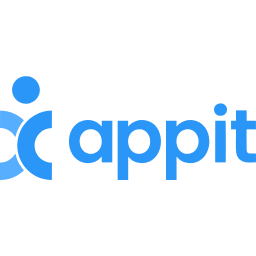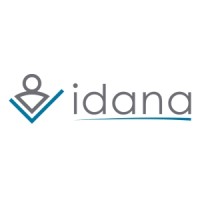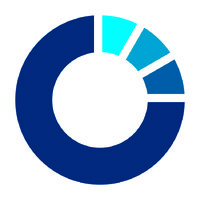Iskustvo
Medior, Senior
Angažman
Puno radno vrijeme
Rok prijave
Istekao
O kompaniji
Ergomedgroup is a rapidly expanding full service mid-sized PV and CRO specializing in Oncology and Rare Disease.
Since its foundation in 1997 the company has grown organically and steadily by making strategic investments and landmark acquisitions, with operations in Europe, North America and Asia
Our company allows for employee visibility (you have a voice!) creative contribution and realistic career development.
We have nourished a true international culture here at Ergomedgroup.
We value employee experience, well-being and mental health and we acknowledge that a healthy work life balance is a critical factor for employee satisfaction and in turn nurtures an environment from which a high-quality client service can be achieved.
Come and join us in this exciting journey to make a positive impact in patient’s lives.
Opis posla
Analytics and business intelligence (ABI) developer provides strategic, analytical, and technical support for business intelligence activities (BI as a self-service) for all Ergomed Group entities (CRO, PrimeVigilance, Adamas, Corporte Services, sponsors/customers). He/She leverages data to gain and create key insights into business opportunities and effectively presents these insights to business stakeholders.
Kvalifikacije
Experience
- At least three years of experience in BI development, data analytics, data engineering, software engineering, or a similar role. Expertise in data modelling and data analysis
Skills Required
- Data Modelling: Understanding dimensional modelling (star schema, snowflake schema), data warehousing concepts (ETL/ELT processes), and data modelilng tools.
- Database Management: Proficiency in SQL, including advanced querying, data manipulation, and performance tuning. Familiarity with databases like SQL Server, Oracle, MySQL, PostgreSQL, or cloud-based databases (AWS Redshift, Azure SQL/Fabric, Google BigQuery).
- Reporting & Visualization: Expertise in BI tools such as Power BI, Tableau, Qlik Sense, or MicroStrategy for creating interactive dashboards, reports, and visualizations.
- Data Analysis: Strong analytical and problem-solving skills, including the ability to analyze data trends, identify patterns, and draw meaningful and actionable insights.
- Cloud Platforms: Familiarity with cloud platforms like AWS, Azure, or Google Cloud, including their data warehousing and analytics services.
- Business Acumen: Understanding and willing to learn of Ergomed business processes, key performance indicators (KPIs), and how data can be used to drive business decisions.
- Communication & Collaboration: Excellent communication and interpersonal skills to effectively collaborate with business stakeholders, gather requirements, and present findings.
- Problem-Solving: Ability to identify and solve complex business problems using data-driven approaches.
- Domain Knowledge: Knowledge of specific industry domains (e.g. clinical trials, pharmacovigilance, healthcare) can be a significant advantage.
- Understanding of best practices in master data management, data governance, data literacy principles is an advantage.
- Proficiency in scripting languages like Python (with libraries like Pandas, NumPy, and Scikit-learn) for data manipulation, analysis, and automation is an advantage.
Dodatne Informacije
Additional Information
We prioritize diversity, equity, and inclusion by creating an equal opportunities workplace and a human-centric environment where people of all cultural backgrounds, genders and ages can contribute and grow.
To succeed we must work together with a human first approach. Why? because our people are our greatest strength leading to our continued success on improving the lives of those around us.
We offer:
- Training and career development opportunities internally
- Strong emphasis on personal and professional growth
- Friendly, supportive working environment
- Opportunity to work with colleagues based all over the world, with English as the company language
Our core values are key to how we operate, and if you feel they resonate with you then Ergomed is a great company to join!
- Quality
- Integrity & Trust
- Drive & Passion
- Agility & Responsiveness
- Belonging
- Collaborative Partnerships
We look forward to welcoming your application.
Oglas istekao?
Slični Oglasi

Full Stack Java Engineer
App ITremote
Lokacija
Remote
Iskustvo
Senior
Rok prijave
još 28 dana

Full Stack Developer 80-100% (f/m/x)
Comparisremote
Lokacija
Remote
Iskustvo
Senior
Rok prijave
još 28 dana

Fullstack Engineer Typescript & Golang
Idana AGremote
Lokacija
Tuzla
Iskustvo
Medior, Senior
Rok prijave
još 6 dana

Engineering Manager in the Healthcare Sector
Idana AGremote
Lokacija
Tuzla
Iskustvo
Senior
Rok prijave
još 6 dana

Analytics Engineer
DeepIntentremote
Lokacija
Banja Luka
Iskustvo
Medior, Senior
Rok prijave
još 30 dana
Top IT poslovi u tvom inboxu
Pretplati se na Dzobs.com newsletter i jednom sedmično ti šaljemo najnovije poslove za odabranu poziciju.
Zanimanje...
